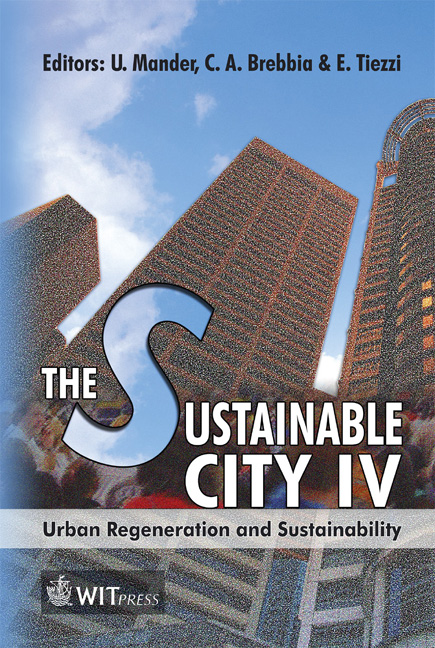Seeking A Unified Urban Systems Theory
Price
Free (open access)
Transaction
Volume
93
Pages
10
Published
2006
Size
305 kb
Paper DOI
10.2495/SC060171
Copyright
WIT Press
Author(s)
D. Coelho & M. Ruth
Abstract
Cities are a key driver of environmental and climatic change, and at the same time significantly impacted by that change. Vulnerability varies spatially and over time, and the complex relationships among climate, ecosystem health, and socioeconomic development call for an integrated theoretical framework within which to study the world’s cities. Advances in the fields of industrial ecology, urban metabolism and urban ecology shed light on these relationships. However, much of the current research is found in the form of case studies. Though detailed and relevant, the lack of a cohesive theory precludes standardization of and comparison between methodical experiments pertaining to the relationship between urban systems and global climate change. Aiming to identify and connect underlying issues, and to drive research forward, this study is a synthesis of key emergent theories and continuities in the body of research surrounding urban systems and global change. Thinking of cities as complex open systems integrated within a larger environmental and social context brings us closer to understanding how cities impact/are impacted by climate change and variability. The physical realism and interdisciplinary nature of a unified urban systems theory will facilitate more grounded and effective policy to shape and govern our cities. Keywords: urban ecology, industrial ecology, urban metabolism, complex systems, climate change. 1 Introduction Cities are a major element of the modern landscape, and as such are impacted by and are sources of significant environmental change, most notably air and water pollution, loss of habitat and biological diversity and global climate change. In 2000, 47 percent of the world’s population lived in urban areas [1]. This figure is higher in developed countries, but most of the population growth and
Keywords
urban ecology, industrial ecology, urban metabolism, complex systems, climate change.





